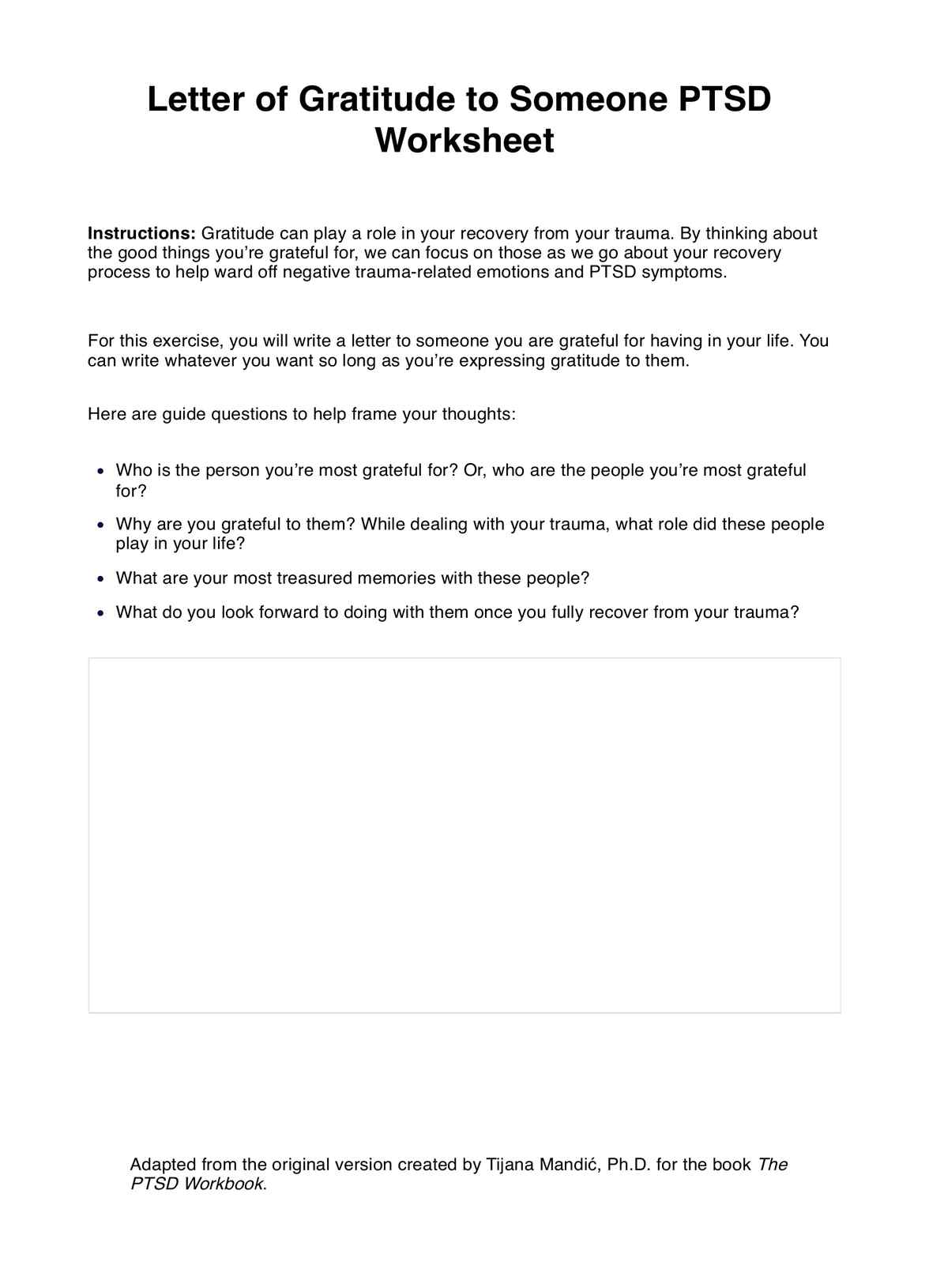Reflecting on gratitude allows individuals to acknowledge the positives in their lives, even amidst trauma and PTSD. Amidst overwhelming experiences, it's easy to overlook the goodness, particularly in relationships. By prioritizing gratitude, especially towards others, individuals can remind themselves of the support they have when they need it.

Letter of Gratitude to Someone PTSD Worksheet
Issue this epistolary worksheet to a PTSD patient who has completed your therapy program and is recovering well.
Letter of Gratitude to Someone PTSD Worksheet Template
Commonly asked questions
It shouldn't be complicated. The instructions are simple, and the person can freely write about their gratitude for others. Difficulties may arise from their trauma, making it hard to see the positives or express gratitude. Provide them with time, space, and support to write to those they're grateful for.
Using this worksheet is not a substitute for therapy. While it may help you work through your trauma, we recommend seeking professional help for a nuanced approach. Dealing with PTSD is complex, and professionals can provide the necessary support.
EHR and practice management software
Get started for free
*No credit card required
Free
$0/usd
Unlimited clients
Telehealth
1GB of storage
Client portal text
Automated billing and online payments











